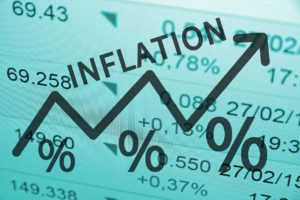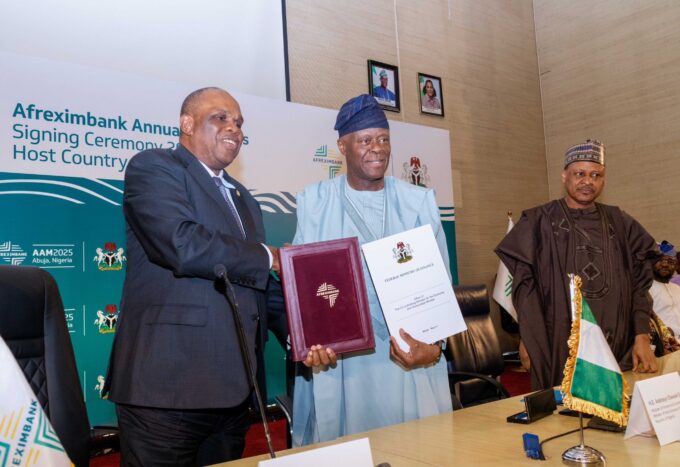…NACCIMA, NECA fume, economists forecast worse days
Nigeria’s Inflation hit a new high of 20.77 per cent in September as food supply, foreign exchange crisis, and increases in import costs worsened, according to the National Bureau of Statistics.
In August, the nation’s inflation rose to 17 year high of 20.52 per cent which has now been broken by September’s figure.
The statistics body disclosed this in its ‘Consumer Price Index’ report which was released on Monday. It listed the likely factors for the increase in inflation year-on-year as the disruption in the supply of food products, increase in import cost due to the persistent currency depreciation, and general increase in the cost of production.
It said, “Likely factors responsible for the decline in the monthly inflation rate (Month-on-month basis).
“Over the past two months, there has been a decline in headline inflation on a month-on-month basis due to a decline in the changes in the food index relative to the reference month index which is due to the present harvest season.
“Likely factors responsible for the increase in annual inflation rate (year-on-year basis). Disruption in the supply of food products.
“Increase in import cost due to the persistent currency depreciation. General increase in the cost of production.”
The NBS further said, “In September 2022, on a year–on- year basis, the headline inflation rate was 20.77 per cent. This was 4.14 per cent points higher compared to the rate recorded in September 2021, which was (16.63 per cent).
“This indicates that in the month of September 2022 the general price level was 4.14 per cent higher relative to September 2021. On a month-on-month basis, the Headline inflation rate in September 2022 was 1.36 per cent, this was 0.41 per cent lower than the rate recorded in August 2022 (1.77 per cent).”
The report further revealed that urban inflation is now 21.25 per cent while rural inflation rate was 20.32 per cent y-o-y in September.
The NBS revealed that food inflation rose to 23.34 per cent in September, y-o-y, because of increases in the price of bread, cereals, potatoes, yam, oil, fat, and other food products.
It stated, “The average annual rate of food inflation for the twelve-month period ending September 2022 over the previous twelve-month average was 19.36 per cent, which was a decline of 1.35 per cent points from the average annual rate of change recorded in September 2021 (20.71 per cent).”
Inflation is highest in Kogi (23.82 per cent), Rivers (23.49 per cent), and Benue (22.78 per cant), and lowest in Abuja (17.87 per cent), Borno (18.12 per cent), and Adamawa (18.42 per cent).
NACCIMA fumes
Commenting on the increasing rate of inflation, the Director-General of the Nigerian Association of Chambers of Commerce, Industry, Mines, and Agriculture, Olusola Obadimu, described any inflation rate that is above 20 per cent as bad for the production sector.
According to him, there is a lack of political will by the managers of the economy to take the decisions needed to address the nation’s mounting economic challenges.
While speaking exclusively to one of our correspondents, he said, “Every fraction of increase is not good. If you listen to foreign news, every fractional increase in inflation is big news. It may look small, but it’s significant.
“Why is it not coming down? Why is it going up? Is it decreasing the cost of doing business or increasing the cost of doing business? That is the critical issue. No matter how small the increase is, it’s not good. Every input that goes into your business has a cost, and when you are budgeting, you must have based your calculations on certain realities. Why are we having over 20 per cent inflation? Anything over 20 per cent is injurious to business health.”
NECA seeks review
According to the Director-General of the Nigeria Employer’s Consultative Association, Wale Oyerinde, the unabated rise in the nation’s inflation has brought to fore the need for the Federal Government to review its monetary and fiscal policies.
He said, “This persistent increase is beyond worry, it has become of great concern in view of the effect on the purchasing power of the generality of Nigerians.
“It is obvious to all discerning individuals that Nigerians and indeed organised businesses are not having the best of times. The current high inflation rate has further brought to the fore the need for Government to take a second look at its monetary and fiscal policies.
“We cannot perpetually ascribe our woes to the war in Ukraine. More focused engagement needs to commence and government must take necessary measures to stop the rapid downward slide, not only of the economy but also of the general standard of living of Nigerians.”
Experts lament
Reacting to the recent data, the Chief Executive Officer, Centre for Promotion of Private Enterprise, and former Director General of Lagos Chamber of Commerce and Industry, Muda Yusuf, said the continuous financing of the Federal Government’s budget by the Central Bank of Nigeria was stifling growth and causing inflation.
He said, “The accelerated growth in fiscal deficit financing by the CBN is boosting liquidity in the economy and have a profound effect of fueling inflation. It is currently around N20tn.
“The CBN financing of fiscal deficit has been elevated to disturbing levels with huge implications for money supply growth and the consequent effect on inflation. It is inflation tax. Elevated inflationary pressures weaken the purchasing power of citizens as real incomes are eroded, increases poverty incidence, aggravates pressure on production costs, negatively impacts profitability, erodes shareholder’s value and undermines investor’s confidence.
“In most cases, increases in production costs cannot be transferred to consumers. The implication is that manufacturers are also taking a hit. This is more pronounced where the demand for the product is elastic.”
He explained that key inflation drivers in the economy have not abated but have only gotten more intense.
The factors include the depreciating exchange rate, rising transportation costs, logistics challenges, forex market illiquidity, hike in diesel cost, climate change, insecurity in many farming communities and structural bottlenecks to production.
Advising the government on how to tackle inflation, he said, “Tackling inflation requires urgent government intervention to address the challenges bedevelling the supply side of the economy and the moderation of fiscal deficit monetization.
“To give producers some succour, the government could tweak the tariff policies by granting concessionary import duty on intermediate products for industrialists. It is imperative at this point to review the import policy on some food items to provide some succour to citizens in the face of excruciating poverty.
“The CBN also needs to adopt a flexible exchange rate policy to address the problem of acute forex scarcity in the economy.”
‘Worse days coming’
In recent times, flooding has sacked communities and destroyed farmlands across the nation. Because of these experts have forecasted that food scarcity might worsen and inflation might go above the roof.
An economist at the University of Uyo, Prof Akpan Ekpo, said, “Food inflation is more serious because it is a very basic item.
“If the issue of insecurity is not addressed and farmers can’t go back to work freely there will be problems, especially with the flood now-perhaps they might lift the ban on importing food.
“If they lift the ban on importing rice, that will become another problem for us, because right now, the flood has affected most of the rice-producing areas in the country. So, I think it is more of a structural problem and supply-side issue we have to address and not necessarily a monetary phenomenon. That part is just the CBN lending to the government which is very high
According to him, the increase in inflation is driven by the insecurity in the country and the nation’s exchange rate regime. He stated that raising of the monetary policy ratio by the CBN will not reduce inflation because the nation’s problem is not demand based.
A professor of Economics at the University of Lagos, Olufemi Saibu, explained that the nation’s inflation challenge is a double-edged-sword because it is having a supply-constrained economy whereby our domestic production could not meet our demand and it depends on foreign goods.
He said, “Given the global inflation, we have imported inflation and therefore, that’s beyond our control. “Secondly, this is an election year for which so much fund will be released into the system. The government spends heavily, and the private sector also wants to be more active in the economy than before, especially in private-to-government activities. We have little leeway to tame this inflation trend. But the best we can do is to produce locally so that we will be able to reduce the consequences of global inflation.
“There’s nothing we can we do now with monetary Policy that can tame the inflation because borrowing has stopped. It is only when funding the economy is directly from the banks that Monetary Policy can be used.”
The Managing Director/Chief Executive Officer, Cowry Asset Management Limited, Mr Johnson Chukwu added, “The major driver of the inflation rate is food which moved to 23.34 per cent from 23.12 per cent and this is because we are still dealing with displacement of farmers in the major farming areas especially in the middle belt and I can tell that this situation will worsen next month with the flooding we witnessed recently across the country.
“To solve this, we simply need to address the problems which is restoring the security around all the food producing part of the country particularly in the North East, West and Central and that will bring moderation to this situation.”icer, Cowry Asset Management Limited, Mr Johnson Chukwu, called for caution in downgrading by rating agencies.
According to him, the Nigerian banks’ capital base is not in dollars but in naira; and the CBN had not devalued the naira, but naira was only experiencing depreciation, as the gap between the official rate of the dollar and the black market rate was very wide.
He said, “We don’t sell oil, or export goods and services; we can’t print dollars. All these rating agencie, Moody’s and co, create panic in a system. Nigerian banks do not operate in dollars with regard to currency matter. Nigeria’s legal tender is naira.
“So if the banks don’t have dollars to give out, it is because there is a shortage. So in that aspect, it is unrealistic and unfair because the Nigerian banking system has done quite well.
“The problem they have is non-performing loans which they are trying, but in terms of forex, it is not their fault. For now there is shortage of forex in the economy so why blaming the banks for that? So I think that rating is unfair and the Central Bank should react to it in my view.”
A professor of economics and public policy at the University of Uyo and the Chairman of the Foundation for Economic Research and Training, Prof. Akpan Ekpo, said the downgrade may not have so much impact on the local banks.
He said, “What this has highlighted to you is the risk that Nigerian banks are exposed to as a result of rationing of foreign exchange. Of course, it has obligations such as Euro bonds that were issued. Some of them also have counterparty liabilities in dollar terms including on lending facility by foreign banks.
“Inability of the CBN to meet the dollar demands of Nigerians means that these banks are struggling to meet their liabilities when they are due for payment, and should they go to the parallel market, the parallel market is shallow, they are going to buy funds at devalued rate which could lead to exchange rate loss, so those are realities. It may have impact on reserves.”
He added, “But in terms of meeting local obligations, I don’t think the banks have been doing terribly in terms of meeting local obligations, the problem will be meeting local obligations given scarcity of foreign exchange.”
A past President, Association of National Accountants f Nigeria, Dr Sam Nzekwe, said it was not easy to get forex from Nigerian banks for travelling or business.
He said, “The economy is not producing, it is only when the economy is producing that people will go to the bank for loan, there is no enabling environment. What affects the individual affects the bank. They will downgrade when the economy is having problem.”
Source Punch














